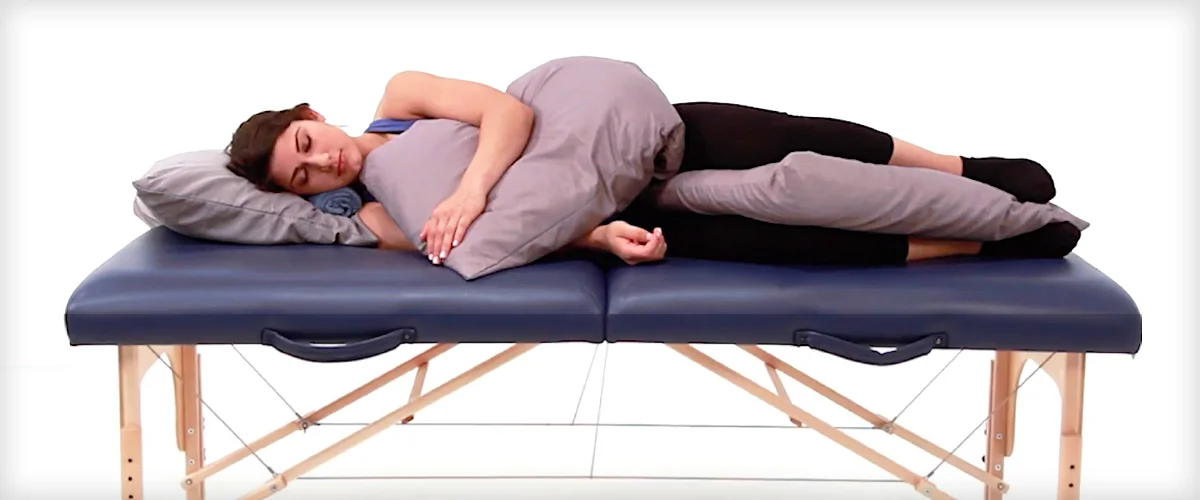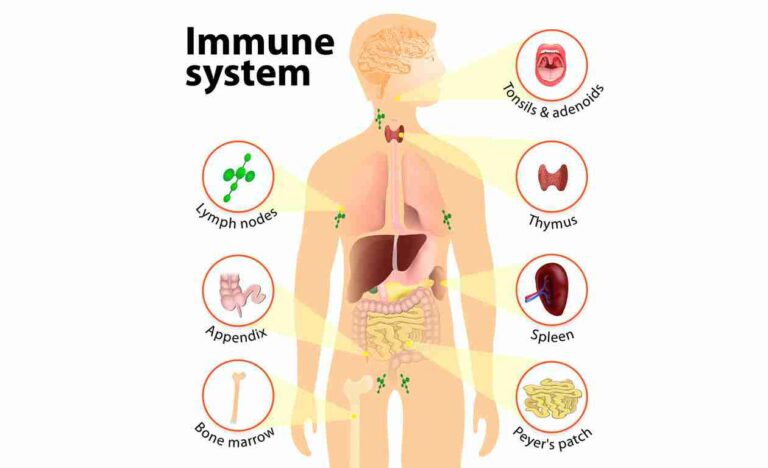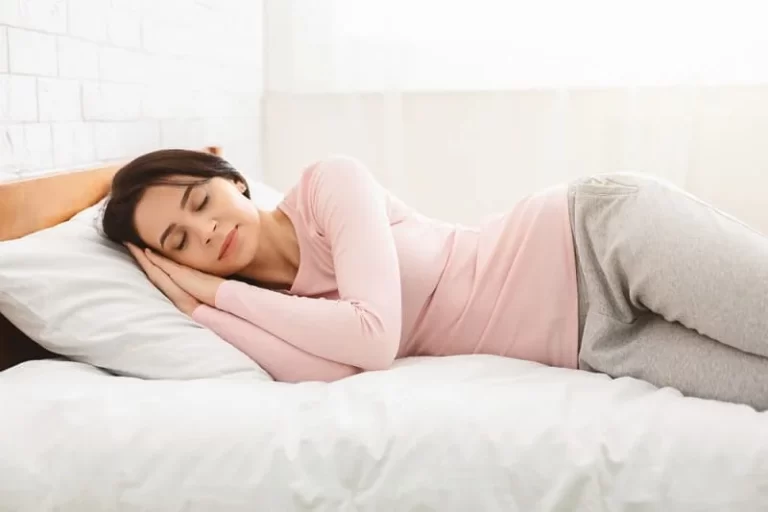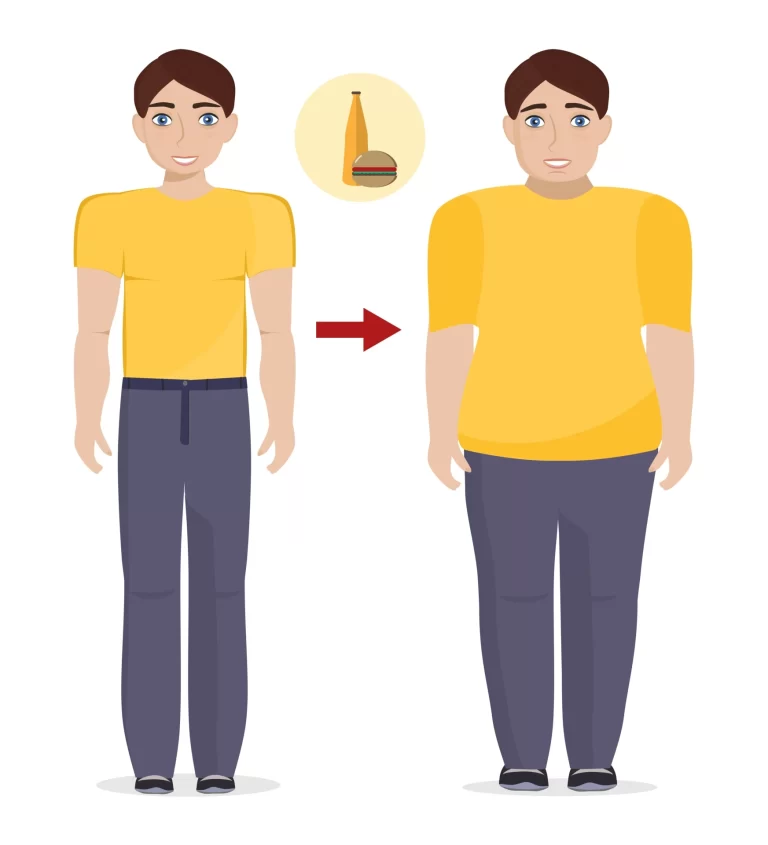Why you feel Shoulder pain When You Sleep on one side?, and What’s the solution?
Table of Contents
Shoulder pain when sleeping on one side:
If you are feeling Shoulder pain When you are sleeping on one side, there are too many causes of this, in this article, we discuss various possible causes of Shoulder pain, What could possibly be causing it? And is there an alternative position you can do about it?
There are too many reasons for the shoulder pain that could occur while you’re sleeping on one side. we’ll investigate each of them in detail as well as the treatment option and alternative steps you can do at Home to help get a good sleep at night.
Why Sleeping on one Side Is Causing Your Shoulder Pain?
Certain positions, such as sleeping on one side of your shoulder (Side lying position), can create extra pressure on your shoulder. This is because when you sleep on one side of your shoulder, your shoulder takes a lot of the weight of your Body.
While your sleeping position on your shoulder can lead to shoulder pain, it’s not the only reason behind it. There are other conditions, such as those below we discuss, that can also lead to Shoulder pain when you’re trying to sleep on one side. With each of the following conditions, sleeping on the affected shoulder can increase the pain.
There are too many reasons why sleeping on one side, your shoulder may feel shoulder pain.
Shoulder impingement syndrome
Shoulder and Rotator cuff muscle- tendons may become compressed between the shoulder humerus bone and the scapular bone during sleeping on one side. When you sleep prolonged time on one side, This can result in rotator cuff compression, and friction and may lead to other conditions such as bursitis, tendonitis, and rotator cuff injury. Symptoms of Shoulder impingement such as Shoulder pain and weakness during reaching or overhead activities.
Shoulder Bursitis
The bursae in the shoulder are fluid-filled sacs that help cushion bones and tendons. Prolonged impingement due to one side sleeping may lead to pain and inflammation of the bursal tissues in the shoulder. This may lead to Shoulder pain, stiffness, and difficulty with movement of the shoulder during day-to-day activity.
Rotator cuff tears
The rotator cuff muscles attach to the Shoulder bone through the rotator cuff tendon. Continue or repetitive impingement of the rotator cuff muscle may cause minor tears (tendinitis) leading to gradually full-thickness rotator cuff tears. Symptoms include Shoulder pain and weakness in the shoulder muscle.
Osteoarthritis of Shoulder
On one side longtime sleeping may also damage the cartilage in the shoulder or inside the acromioclavicular (AC) joint of the shoulder. This may cause shoulder osteoarthritis or AC joint osteoarthritis. Symptoms such as Joint stiffness, painful clicking or popping, and shoulder pain that worsens with movement.
Frozen shoulder
Frozen shoulder (adhesive capsulitis) involves Shoulder joint stiffness, muscle weakness, and pain. Signs and symptoms start slowly, then get worse over time.
An immobile shoulder for a longer period increases the risk of developing a frozen shoulder. After an injury around the shoulder or surgery, the Doctor prescribes you shoulder immobile splint, which leads to a frozen shoulder.
Treatment for adhesive capsulitis is Shoulder range-of-motion exercises with pain relieving medicine. corticosteroids and medications injected are also used to improve the mobility of the shoulder and relieve shoulder pain. Rarely, arthroscopic surgery is required if nonsurgical treatment fails to recover where it helps to loosen the joint capsule so that it can move more freely.
What is the best way to sleep if you have shoulder pain?
If you feel Shoulder pain when sleeping on one side of your shoulder, the following tips may help make sleeping more comfortable:
Sleeping on your back or try an Alternative sleeping position: This is the best option to get rid of your shoulders. Maintain a comfortable alternative position by using pillows. Sleeping in an inclined position such as using of a reclining chair, raising the head of the bed, or using pillows can also help reduce weight on the shoulder.
Avoid sleeping on the affected shoulder: Alter your sleeping position to the opposite side or to your back or stomach may help reduce the pressure painful shoulder.
Use a pillow: Most people change positions in sleep. If you’re troubled about rolling onto your painful shoulder, try placing a pillow in such a way that will prevent you from doing so.
Stay active: Regular exercise can improve your blood circulation and flexibility. This may help the muscles and tendons around your shoulder to heal faster if you have a Shoulder injury. However, doing regular gentle shoulder stretches or exercises may help relieve shoulder pain.
Know your limits: Avoid painful activities during the day that could lead to further damage to your shoulder.
Use pain reliever medicines: Try taking pain reliever medicines, such as acetaminophen or ibuprofen, shortly before sleeping.
Doing good sleep habits: A regular sleep schedule with enough sleep is Good for healing related to Shoulder pain-related injury. Turn off late-night TVs, computers, phones, or other screens just before sleep. Avoid caffeine, nicotine, and alcohol late at night.
How to Prevent Shoulder Pain?
There are a few important Preventive tips that help to keep your shoulders strong, flexible, and healthy, and reduce the risk of injury.
Here are a few useful tips such as:
Avoid repetitive movement, if possible. Repetitive movements such as overuse of the Shoulders such as lifting and throwing can place extra strain on your shoulder joint.
Use of Hot and ice packs: Easy-to-use Home remedies to relieve shoulder pain by applying hot and ice packs to the affected site, depending on your shoulder symptoms. If you have shoulder osteoarthritis, a Hot pack can help relieve the muscles and stiff joints. If you have a shoulder strain, an ice pack can help relieve pain and reduce swelling. Following ice, the hot pack can help reduce joint stiffness.
Take enough rest. If you’re doing repetitive movement as part of your work or a sport, be sure to take regular rest in between activities.
Regular Exercise. Keeping the muscles around a Shoulder joint strong, and flexible can help to reduce the risk of injury. Be sure to properly warm up and stretch first before heavy exercise or activity or playing sports.
Use a dolly or wheelbarrow for heavy lifting. This can reduce the strain on your shoulders from lifting or carrying a heavy weight.
When to consult your doctor?
Make an appointment with your doctor if you feel shoulder pain while sleeping, or while you’re awake, that’s:
- Sudden or severe Shoulder pain
- Continuous lasting pain for more than a few days
- difficulty in performing your day-to-day life, also your sleep
- other symptoms such as Shoulder muscle weakness or a loss of Shoulder movement
- associated with a Shoulder injury
Conclusion:
Shoulder Pain while sleeping on one side of the Shoulder can have many causes such as Shoulder impingement syndrome, rotator cuff injuries, bursitis, and osteoarthritis.
Sleeping on one side of the Shoulder put extra pressure on your shoulder, causing shoulder pain and inflammation. Sleeping on a shoulder that’s already painful or injured can also increase the pain.
If you feel shoulder pain at night, try to alternative your sleeping position so you’re not resting directly on your affected shoulder. You can also use pillows to prevent yourself from rolling onto your shoulder. Pain reliever medicines and the use of cold/Hot packs with alternative sleep habits may also help.
If you have shoulder pain that is severe, or persistent, be sure to consult your doctor. They can help diagnose the condition and prescribe a treatment plan that’s right for you.







